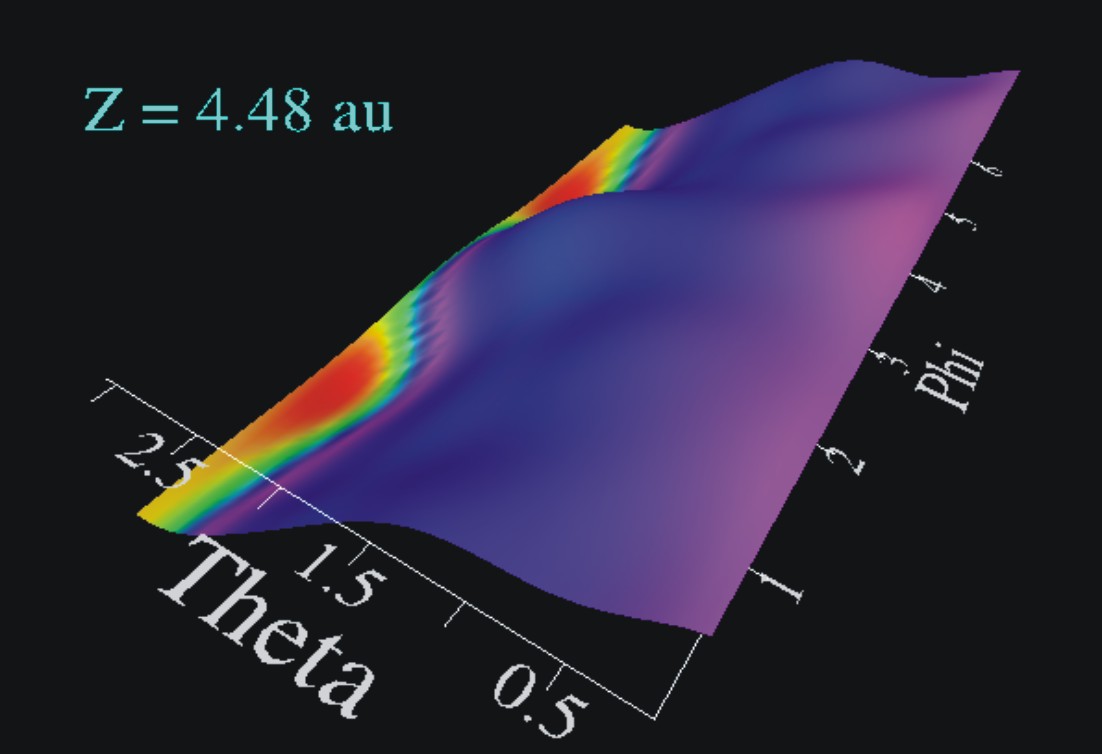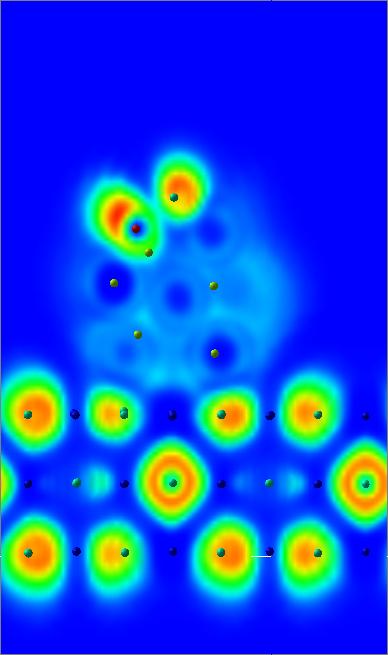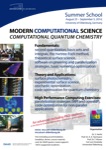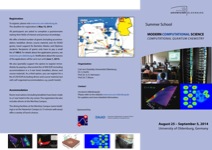Modern Computational Science - Summer School
5th International Summer School on
MODERN COMPUTATIONAL SCIENCE
Computational Quantum Chemistry
August 25 - September 05, 2014, Oldenburg, Germany
Funded by the German Academic Exchange Service (DAAD)
Download of Poster and Flyer:
Overview
The theoretical chemistry of interfaces and surfaces is a highly topical field of research, bearing applications in fields as diverse as material science, energy research and heterogeneous catalysis. Thereby, the atomistic description of complex chemical processes routinely requires a quantum theoretical approach. It thus constitutes a huge challenge, demanding the utilization of sophisticated and up-to-date numerical methods. Consequently, since computations on a molecular level are numerically very demanding, researchers working in the context of theoretical chemistry traditionally belong to the key users of high performance computing (HPC) facilities.
The scope of this Summer School is twofold: in the first part it aims to deepen the understanding of the basic theoretical principles of Computational Quantum Chemistry, and in the second part it will demonstrate the application of quantum chemical methods to current problems in surface science.
In doing so, a central concern of the Summer School is to convey modern programming techniques that assure the optimal usage of computational resources. For this purpose, the Summer School will offer two intensive computer labs, focusing on code optimization and parallelization strategies, that will utilize the local HPC cluster HERO and deepen the participants knowledge via a hands-on approach.
The Summer School addresses students from Master level onwards (including PhD students) who wish to learn more about recent developments in Computational Quantum Chemistry. Participants should have a basic knowledge of a higher programming language like C/C++ or Fortran. Further, fundamental knowledge of mathematics, quantum physics, and algorithms and data structures are beneficial. Participants who attended all lectures and successfully completed the practical exercises can earn 4 ECTS credit points and will be handed out a certificate at the end of the School.
Further, the Summer School offers the possibility for participants to present their own research work during a poster session.
We would also like to draw your attention to the book
Topics
The first week will be mainly used to review and deepen the understanding of the basic theoretic principles of Computational Quantum Chemistry. More specialized topics that refer to the application of quantum chemical problems to current problems in surface science will be dealt with in the second week. Subjects of the Summer School include (but are not limited to):
- Fundamentals: second quantization, basis sets and integrals, the Hartree-Fock method, theoretical surface science software engineering and parallelization strategies, basic numerical optimization
- Theory and Applications: surface photochemistry, experimental surface science, stochastic optimization, code optimization for quantum chemistry
- High Performance Computing with Exercises: parallelization strategies (MPI and openMP) and code optimization for modern processors
Lecturers
Guest Lecturers:
- Georg Hager,
HPC Services,
Erlangen Regional Computing Center (RRZE) - Willem M. Klopper,
Institute of Physical Chemistry - Theoretical Chemistry Group,
Karlsruhe Institut of Technology - Rolf Rabenseifner,
Parallel Computing - Training and Application Services,
High Performance Computing Center Stuttgart (HLRS) - Volker Staemmler,
Center for Theoretical Chemistry,
University of Bochum
- Alexander K. Hartmann, Computational Theoretical Physics
- Martin Holthaus, Condensed Matter Theory Group
- Thorsten Klüner, Theoretical Chemistry
- Niklas Nilius, Scanning Probe Spectroscopy



